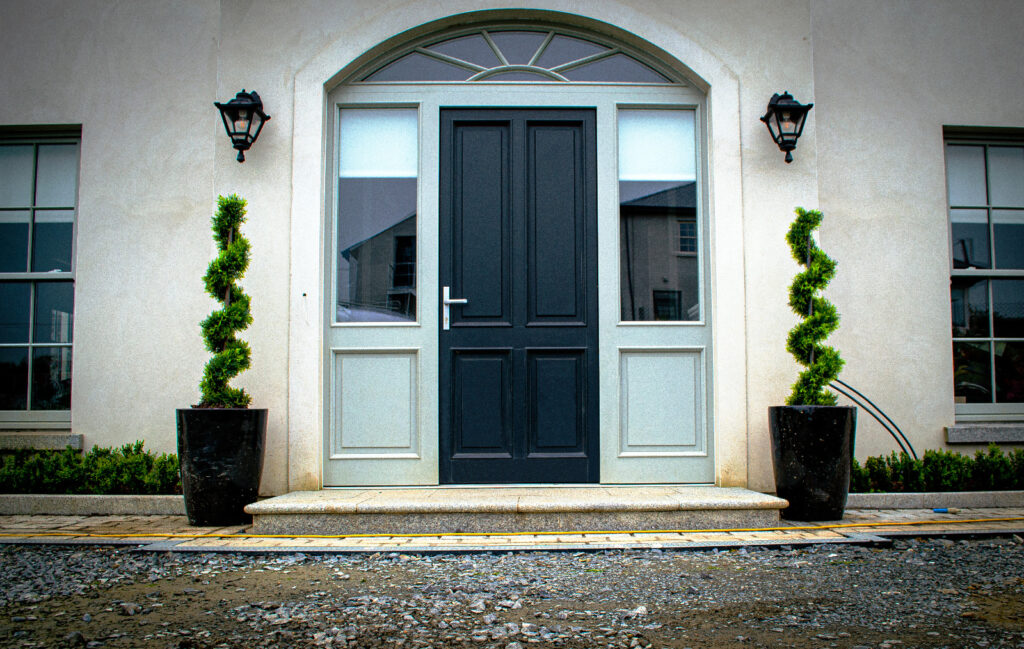Choosing the Best External Doors: Wood, PVC, Aluminum Composite, Wood Aluclad, and More
Introduction:
Choosing the right external door is essential for both enhancing your home’s appearance and ensuring functionality. With a range of materials available—wood, PVC, aluminum composite, and wood aluclad—it’s crucial to understand their differences. In this guide, we’ll explore these options, covering benefits, drawbacks, sound and heat insulation, maintenance needs, and longevity.
Wooden Doors:
Wooden doors radiate timeless charm and offer excellent insulation properties, making them a popular choice among homeowners. They provide natural beauty and warmth, elevating the overall aesthetic of any home. Wooden doors typically offer sound insulation values ranging from 25dB to 35dB and heat insulation values ranging from 1.0 to 2.0 W/m²K. However, they require regular maintenance to prevent warping, rotting, and fading.
PVC Doors:
PVC doors have surged in popularity due to their durability, low maintenance requirements, and affordability. Resistant to moisture, rot, and corrosion, PVC doors are ideal for external use. They offer excellent thermal insulation, typically ranging from 1.5 to 2.5 W/m²K. Sound insulation values for PVC doors range from 25dB to 35dB. However, they may lack the aesthetic appeal of wooden or composite doors.
Aluminum Composite Doors:
Aluminum composite doors marry the strength and durability of aluminum with the aesthetic appeal of wood or PVC. Highly resistant to weathering, these doors offer long-lasting performance in various climates. Aluminum composite doors boast excellent security features and sound insulation properties, typically ranging from 30dB to 40dB. Heat insulation values range from 1.0 to 2.0 W/m²K. However, they may come at a higher cost and require professional installation.
Wood Aluclad Doors:
Wood aluclad doors strike the perfect balance between natural beauty and durability. Featuring a wooden interior and aluminum cladding exterior, they offer superior weather resistance and minimal maintenance requirements. Wood aluclad doors provide excellent insulation properties, typically ranging from 1.0 to 2.0 W/m²K for heat insulation and 30dB to 40dB for sound insulation. While they may be more expensive than other options, they are a worthwhile investment for any home.
Conclusion:
When selecting an external door, it’s crucial to consider factors such as durability, insulation, maintenance requirements, and longevity. Wooden doors exude classic beauty but demand regular upkeep. PVC doors offer durability and affordability but may lack aesthetic appeal. Aluminum composite doors combine strength and aesthetics but may come at a higher cost. Wood/aluclad doors provide the perfect blend of natural beauty and durability, making them an excellent choice for homeowners seeking long-lasting quality. To explore a wide range of external door options, including wood, PVC, aluminum composite, wood/aluclad, and more, visit Minde Windows showroom for expert advice and premium products tailored to your needs.







